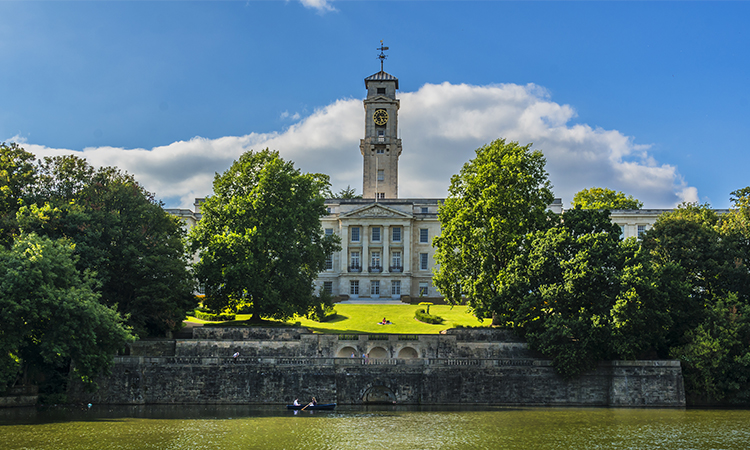University of Nottingham: New research network will aim to improve muscle resilience throughout people’s lifespan
Experts from the University of Nottingham will be part of a new national research network to tackle challenges in ageing.
The Nottingham researchers will join colleagues from 27 other universities, who will collaborate to create 11 new national networks aimed at transforming ageing research in the UK, funded with £2 million from the Biotechnology and Biological Sciences Research Council (BBSRC) and the Medical Research Council (MRC).
Dr Mathew Piasecki, Assistant Professor of Clinical, Metabolic & Molecular Physiology in the Centre Of Metabolism, Ageing & Physiology (COMAP) in the School of Medicine at Nottingham, will join the MyAge (Muscle resilience across the life course: from cells to society) network, which is led by scientists at the University of Southampton.
Previous reviews of how to boost ageing research in the UK have found research efforts to be fragmented, focusing on single aspects of ageing. Now these networks aim to provide researchers with strong interdisciplinary platforms to integrate expertise and knowledge across disciplines to deliver a better understanding of the biological mechanisms of ageing and how to increase healthy lifespan and quality of life in old age.
Over the course of the two-year project, they aim to build new collaborations and hypotheses for the future of research in this area and develop a roadmap to interventions that can achieve five more years of independent living. Previous reviews of how to boost ageing research in the UK have found research efforts to be fragmented, focusing on single aspects of ageing. Now these networks aim to provide researchers with strong platforms to integrate expertise and knowledge. They will aim deliver a better understanding of the biological mechanisms of ageing and how to increase healthy lifespan and quality of later life.
Working alongside the public, industry partners, charities, policymakers and health practitioners, the networks aim to translate findings into future policy, public health and new therapies.
MyAge brings together experts from different disciplines and sectors to understand the fundamental mechanisms behind muscle ageing.
Nottingham has a strong background in ageing research with the Centre for Musculoskeletal Ageing Research (CMAR) and several arms of the NIHR Nottingham biomedical Research Centre (BRC). As part of the newly formed MyAge Network, we hope to bring together researchers, members of the public and organisations with a multi-disciplinary approach to help shape the future of ageing research.”
Dr Mathew Piasecki, Assistant Professor of Clinical, Metabolic & Molecular Physiology in the Centre Of Metabolism, Ageing & Physiology (COMAP) in the School of Medicine
Professor Melanie Welham, Executive Chair of the Biotechnology and Biological Sciences Research Council, said: “At the heart of improved health and wellbeing is a deep, integrated understanding of the fundamental mechanisms that contribute to maintaining health across the full life course. An understanding that is underpinned by collaboration, partnerships and shared knowledge. By funding the Ageing Networks, we’re not only addressing a major societal challenge – we’re also stimulating multidisciplinary research and innovation, with the potential for some really exciting breakthroughs.”
Professor John Iredale, interim Executive Chair of Medical Research Council, said: “How to keep people healthier as they live longer is one of the biggest challenges facing 21st century medicine and our society. To make greater progress we need to transform how we conduct ageing research – both by bringing together scientists from many disciplines with the public, clinicians, policymakers and industry. The new networks we’re funding will build UK-wide collaborations to better understand the fundamentals of ageing, paving the way towards the development of novel interventions to prevent, halt or reverse aberrant ageing.”

